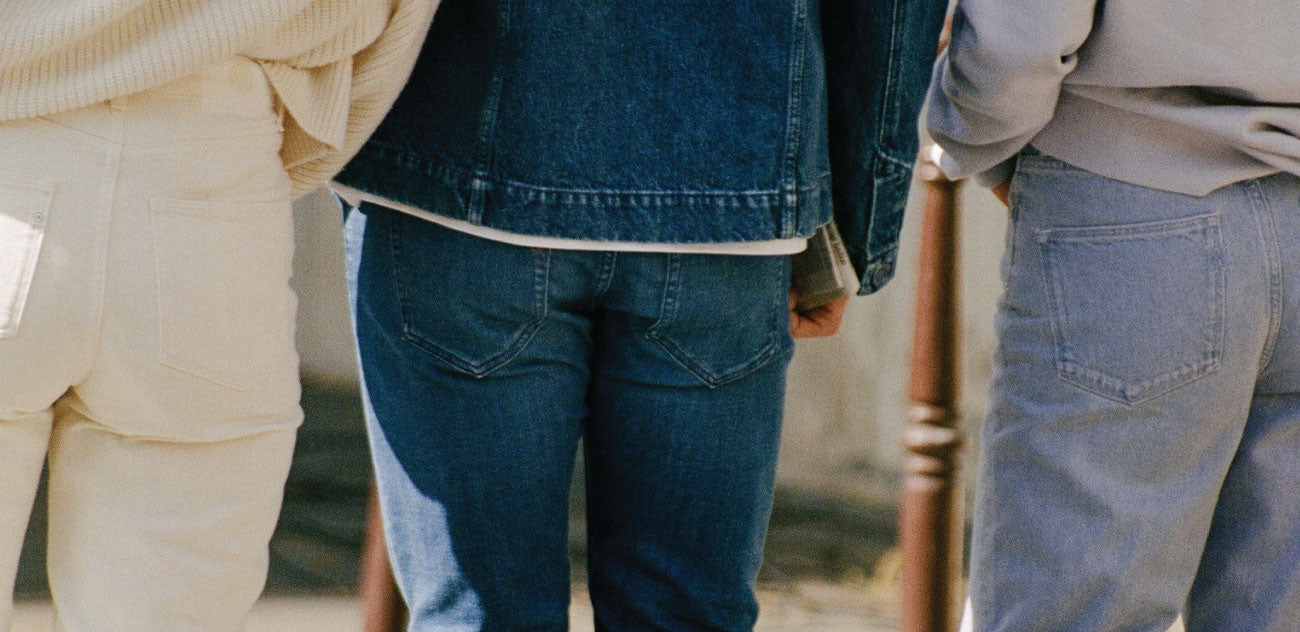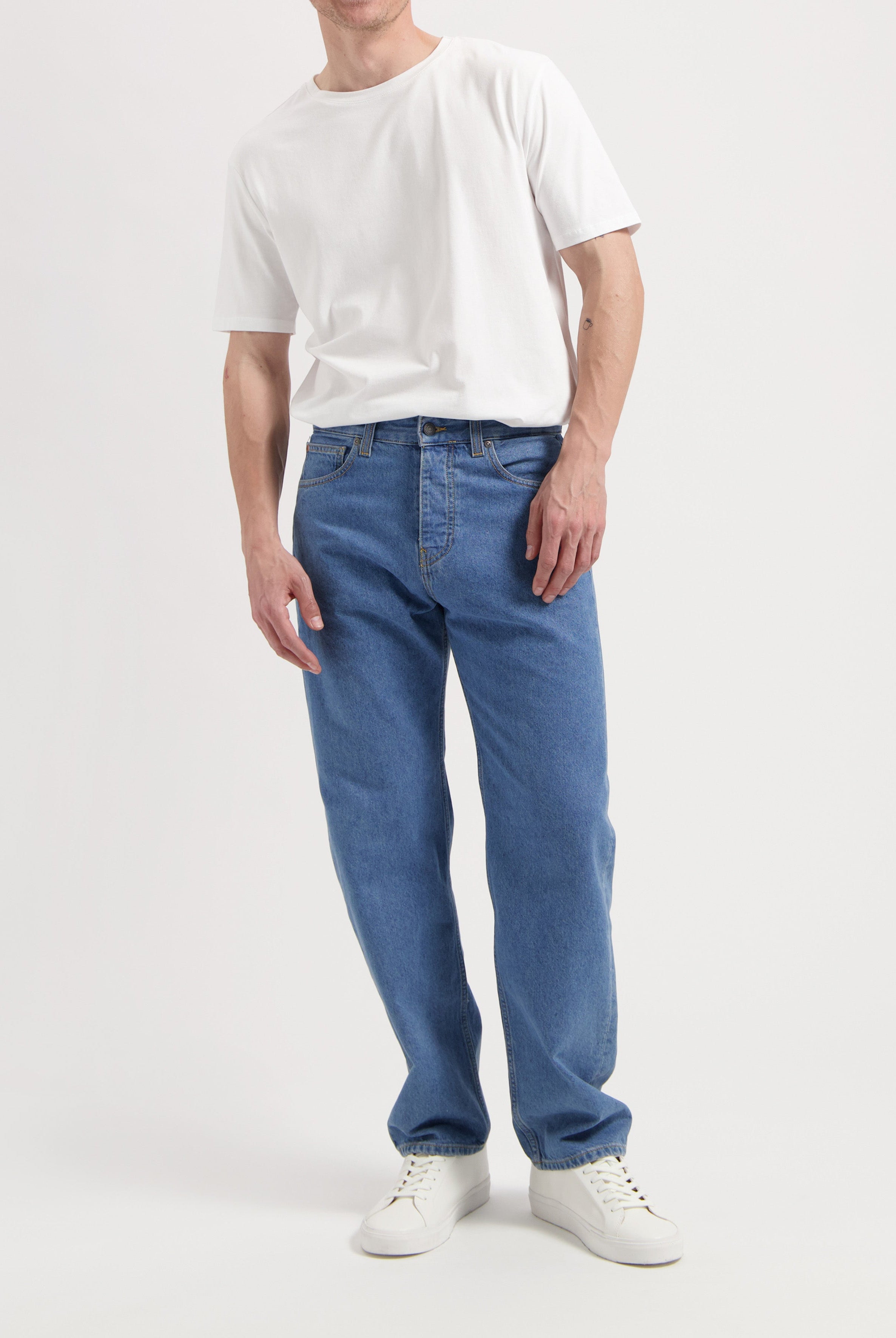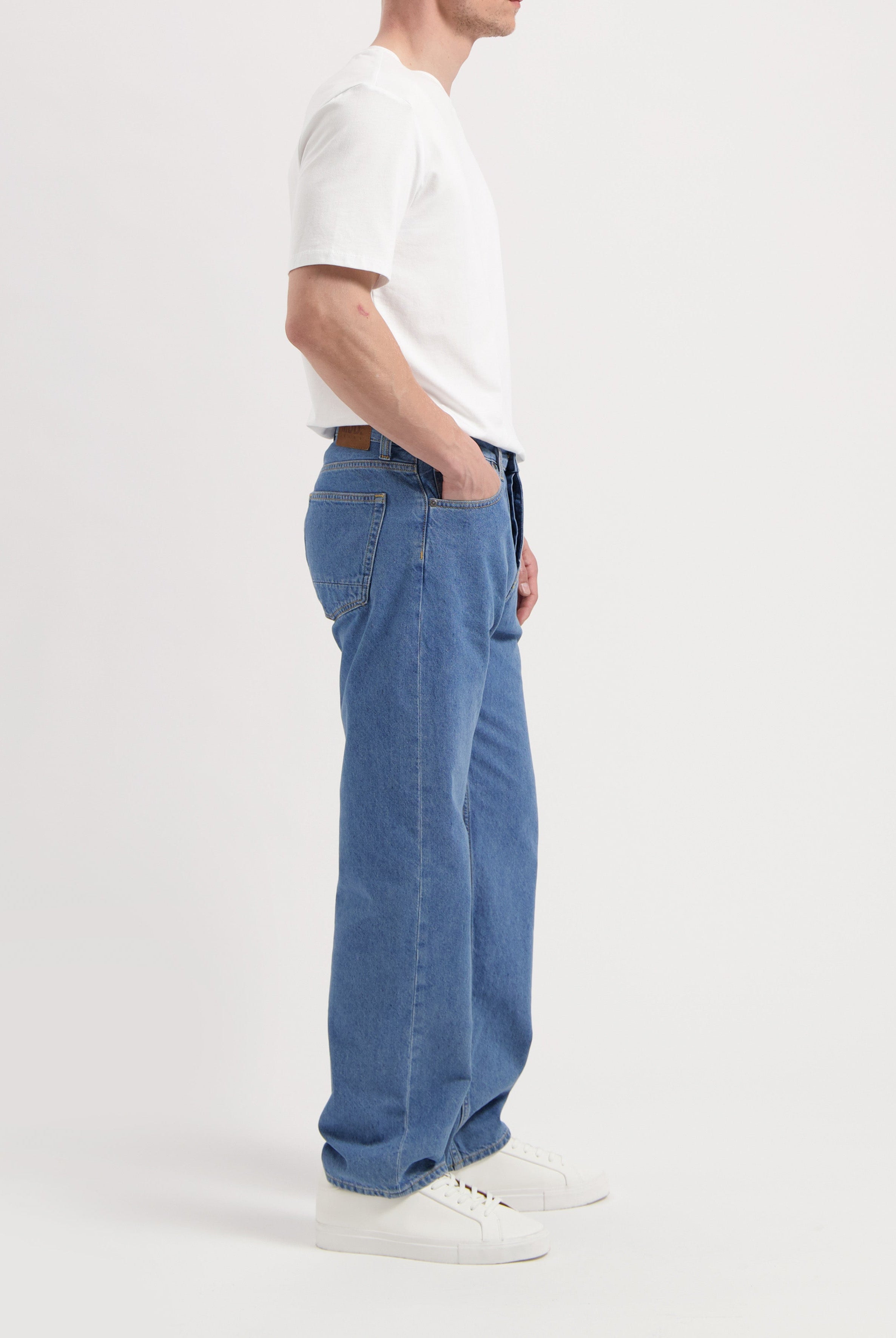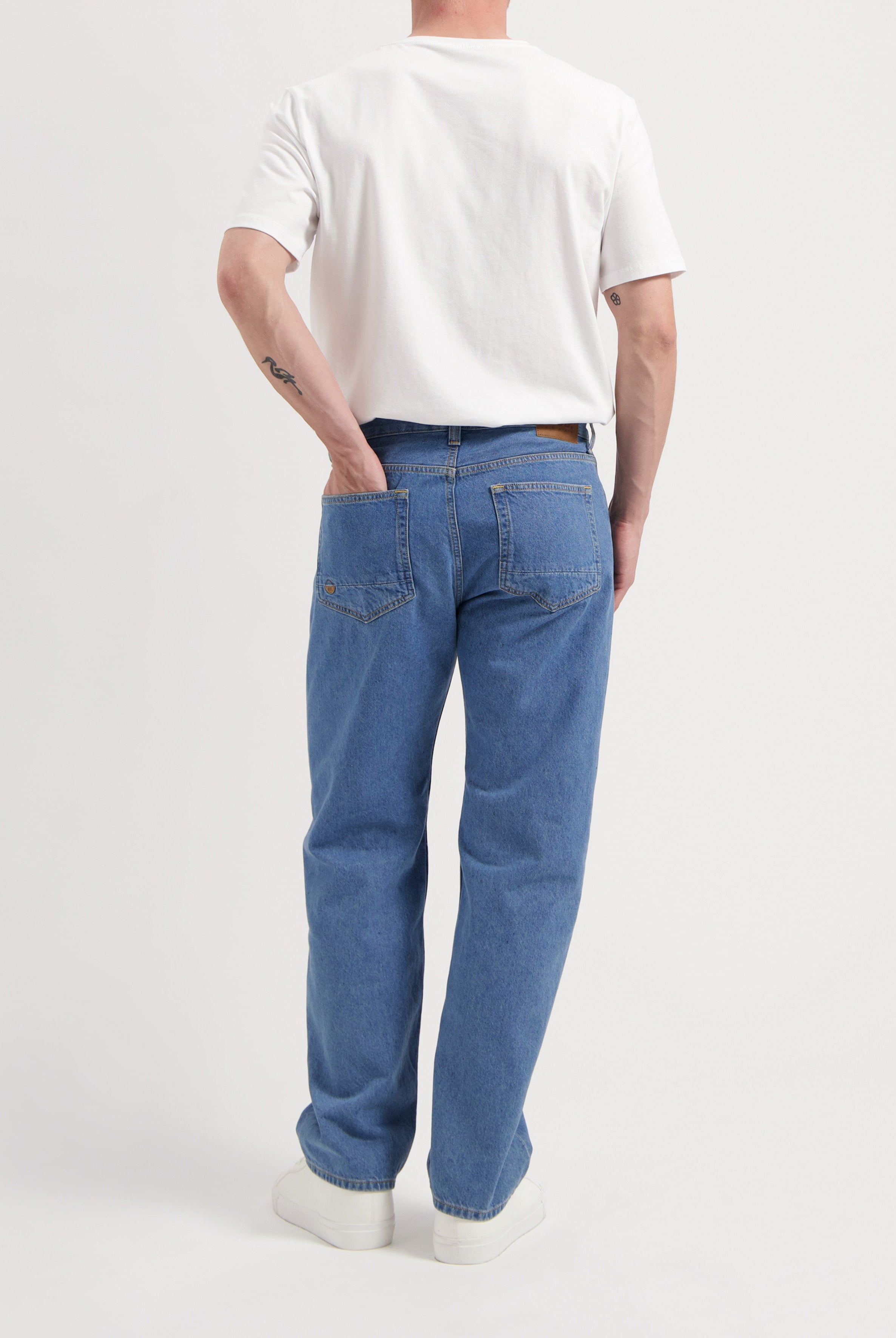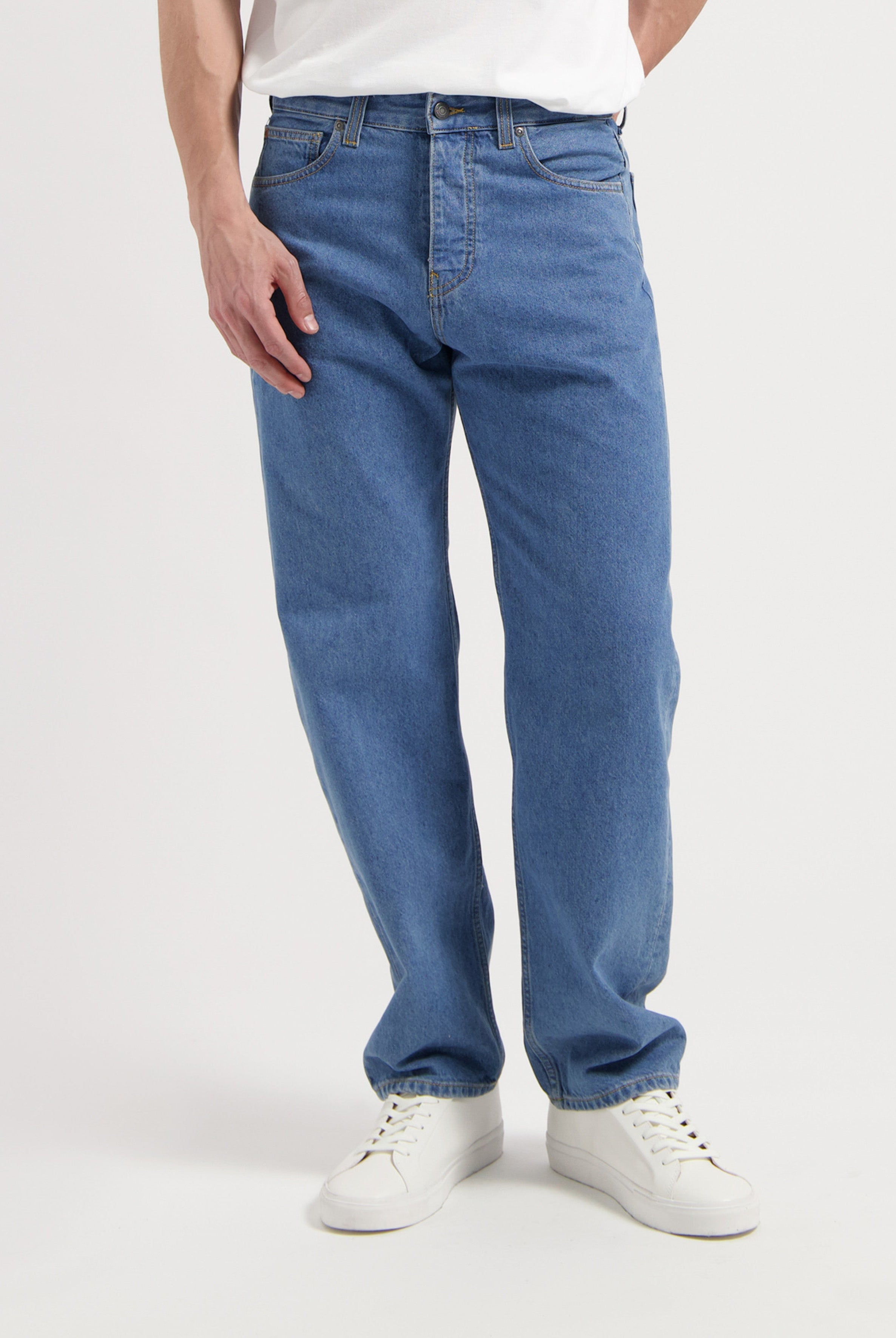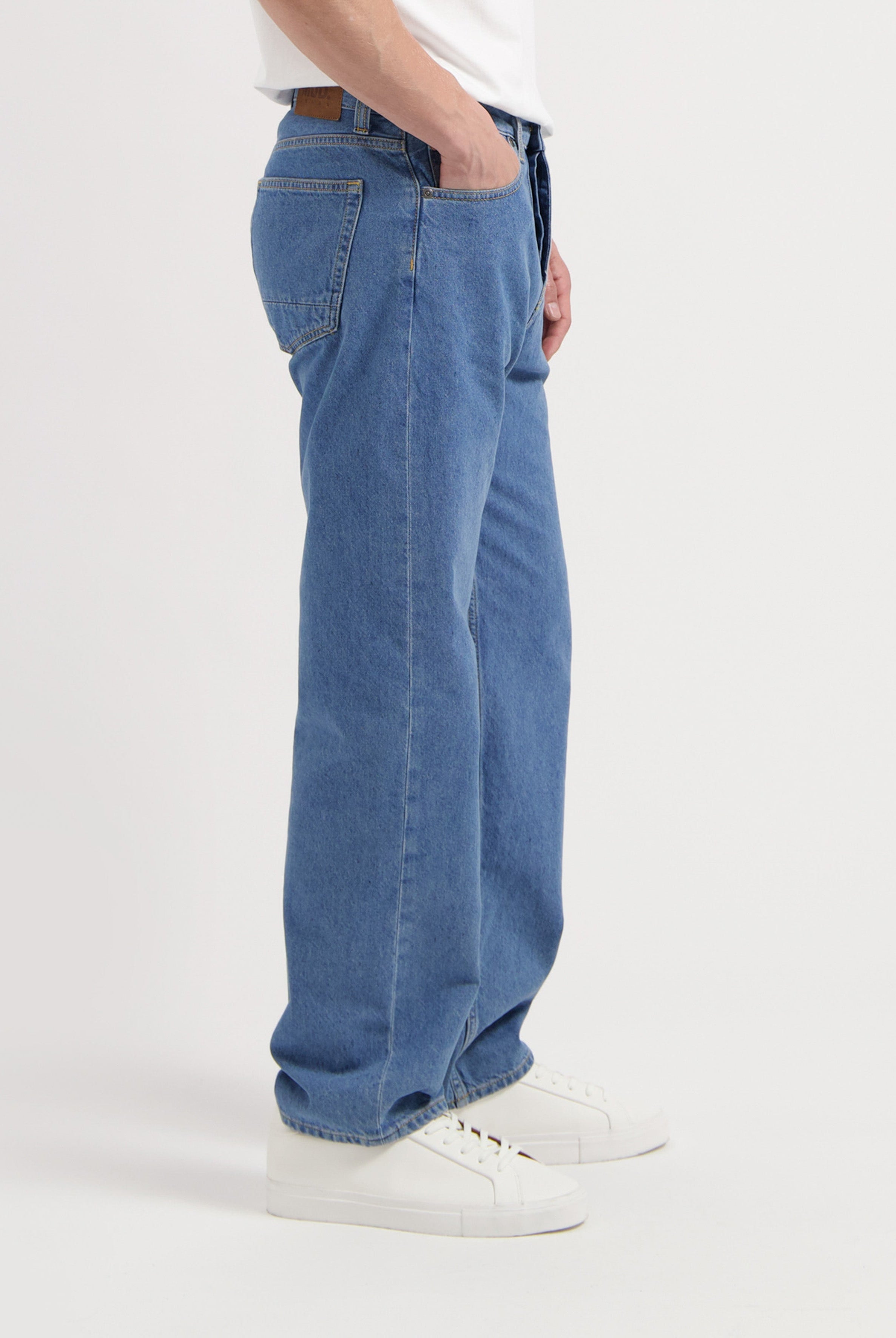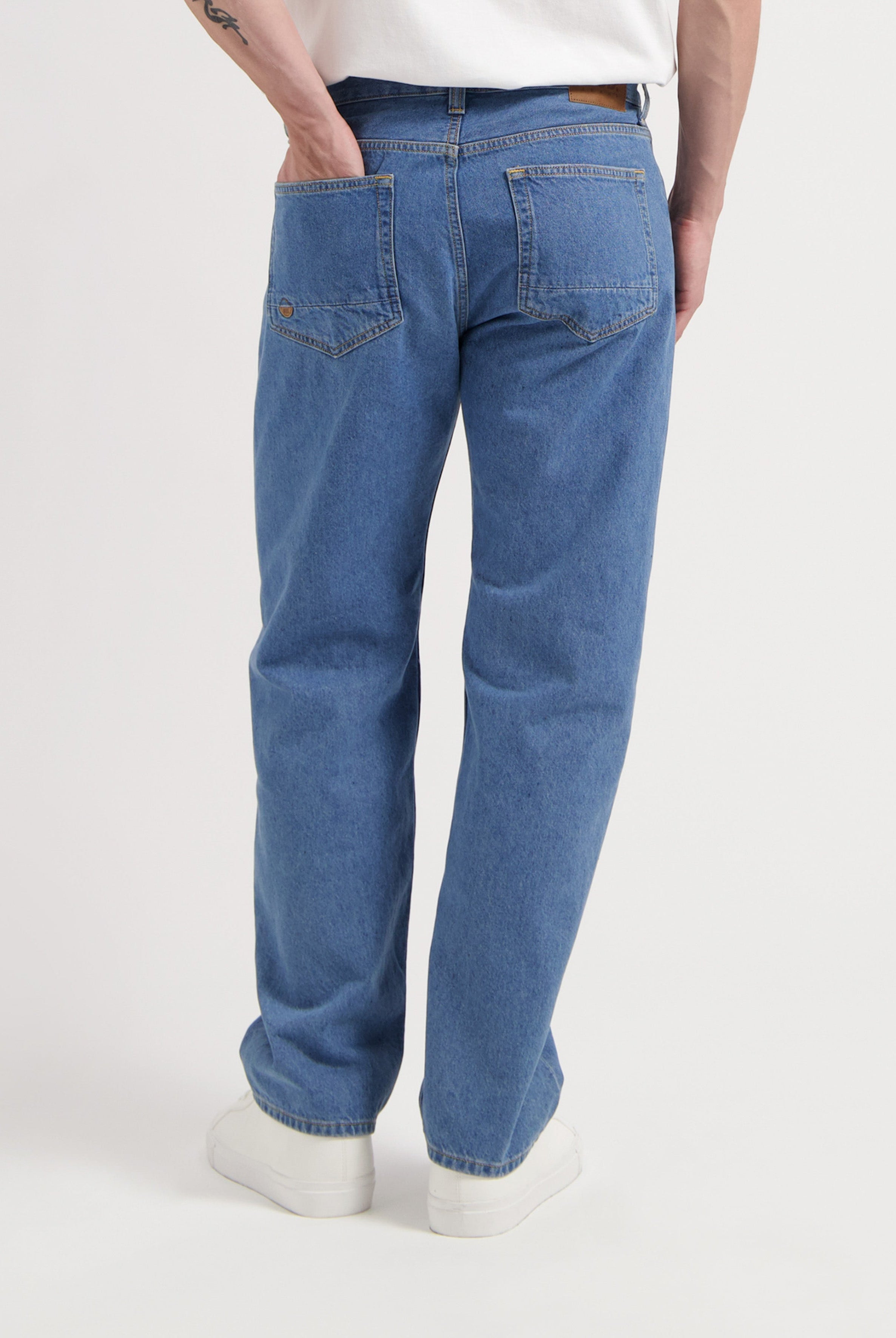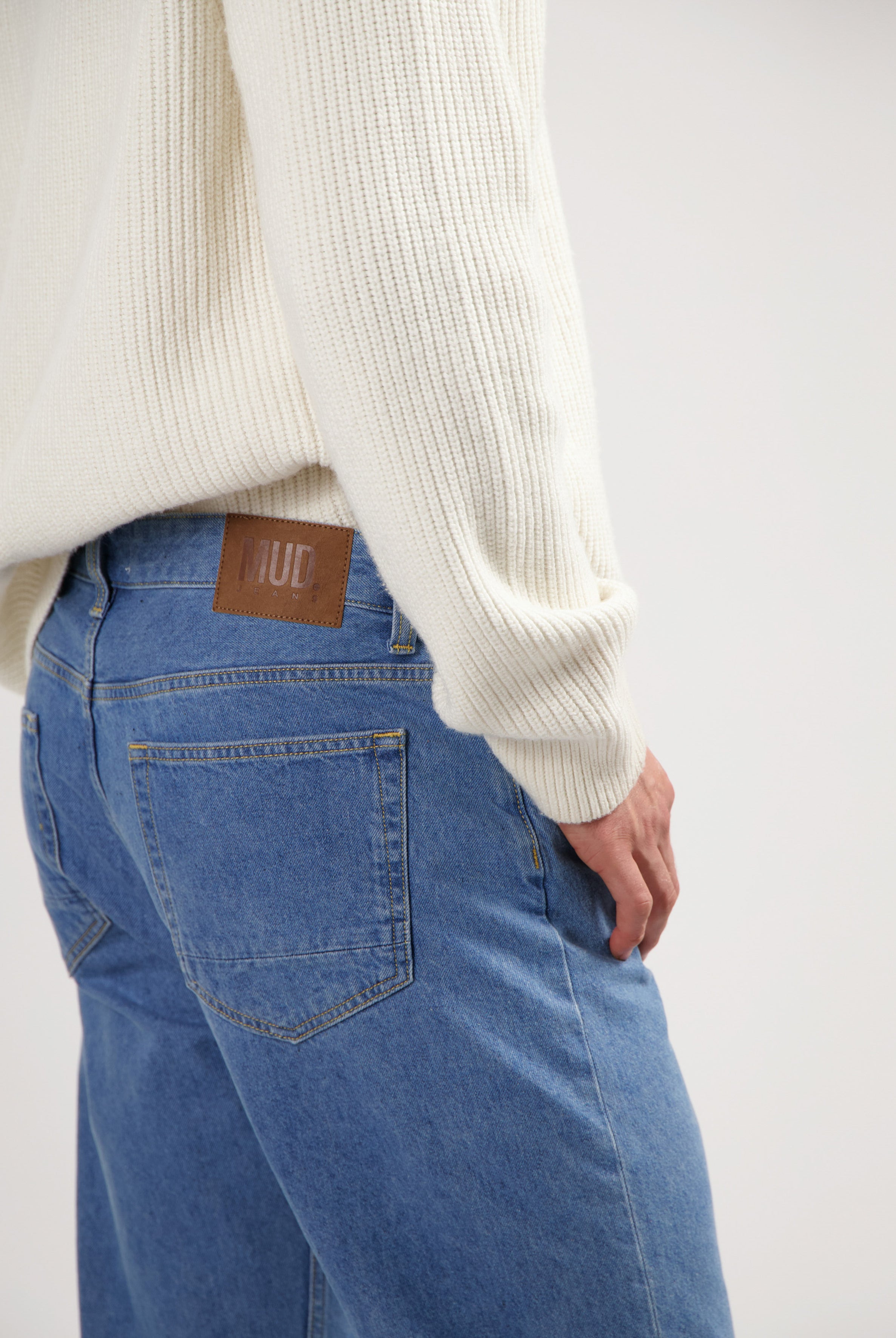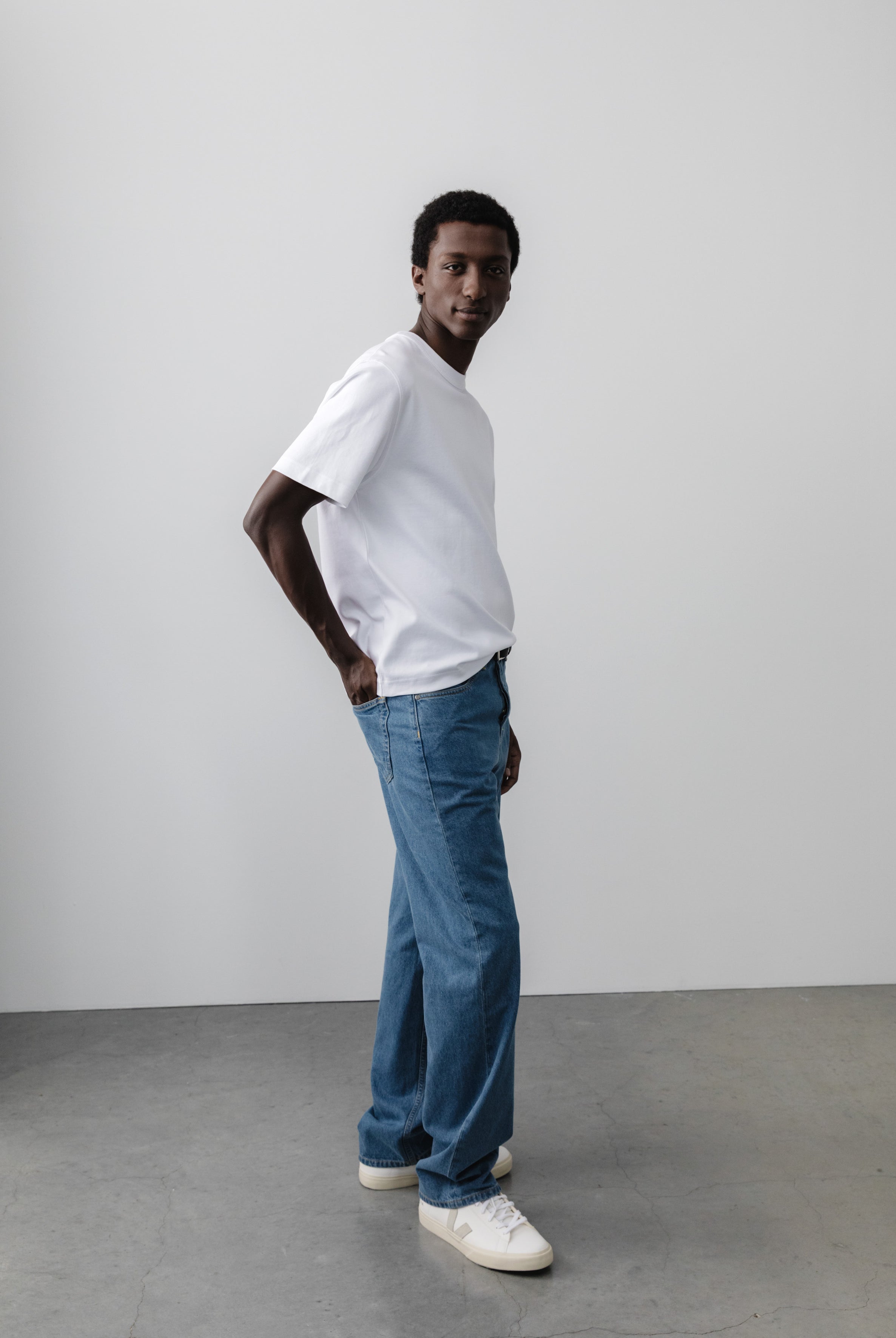This class is about transparency and traceability. As the terms suggests, it is all about sharing honest information concerning the making of a product. As such, it will be showing the details and numbers behind MUD Jean’s efforts to be a sustainable and circular brand. This section covers MUD Jean's supply chain, the production process, origin of materials, and impact data of production. But most importantly, it covers how we share and use this data to for improvement. You will walk away from this section with a better understanding of the power and value of transparent information.
Estimated time to complete: 30 minutes
In this section you will:
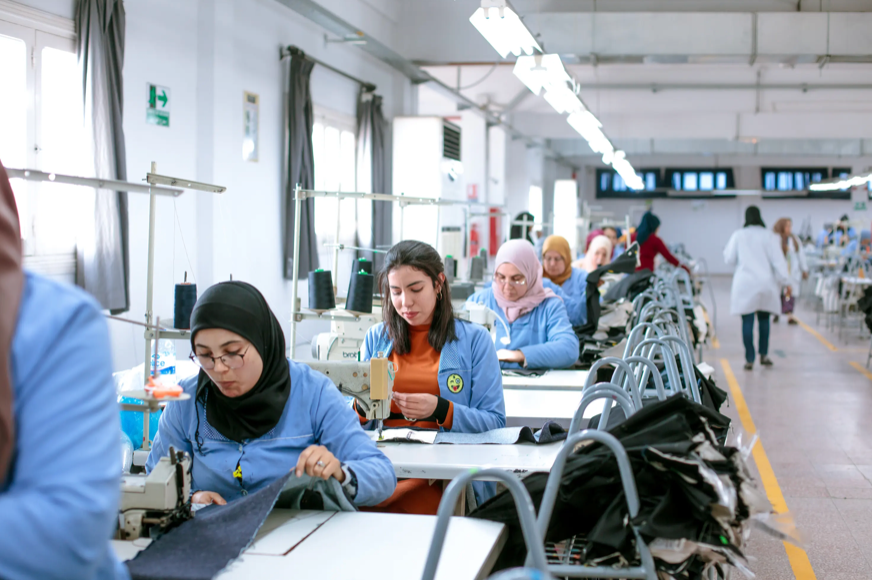
Learn about MUD Jean's supply chain, and see how we ensure that fair and sustainable practices are employed throughout the chain.
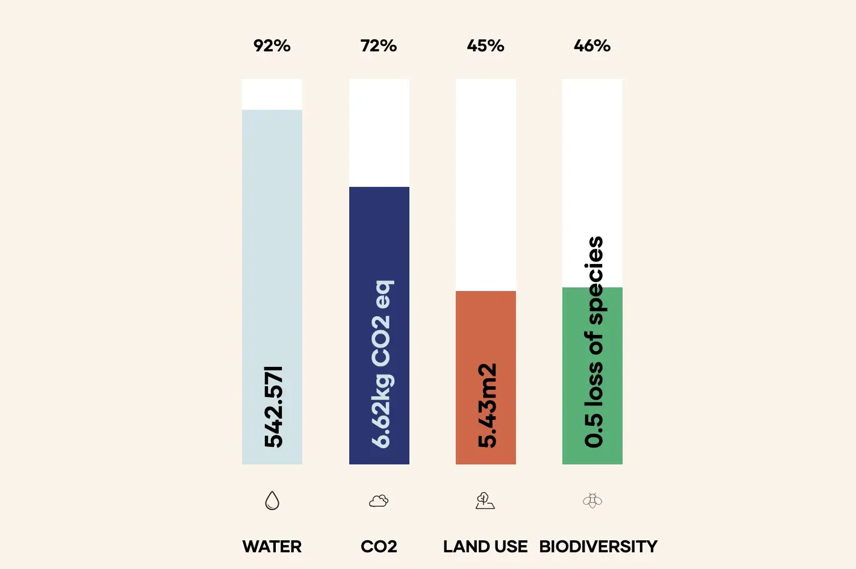
Look at the numbers behind the impact MUD Jeans is having with the circular model.

See how MUD Jeans works with other internationally recognized organisations and targets, to ensure safe and fair practices in everything we do.
Who is Ecochain?
Ecochain is an Environmental Intelligence Platform. In other words, they are the number geniuses who support and verify our environmental impact calculations. With their help, we have been able to calculate the environmental impact of every single style in our collection.
*Please note that the video on the right was recorded in 2021 and our impact numbers have since reduced further.
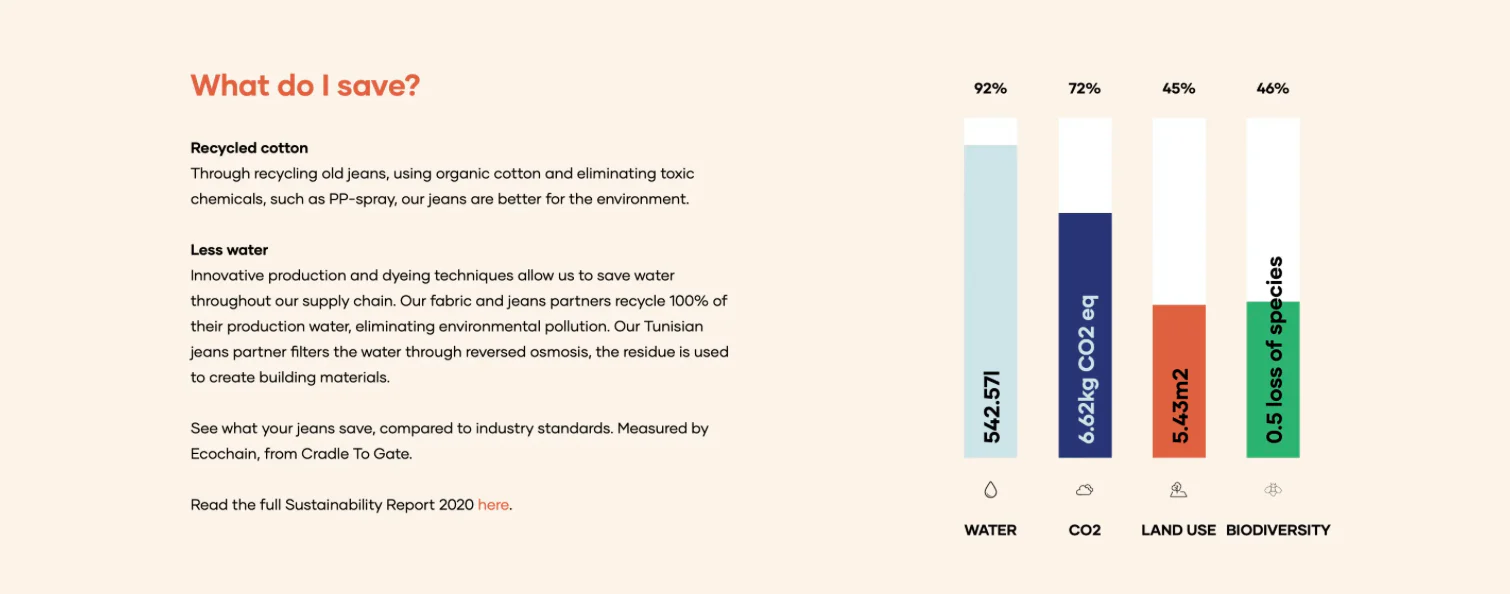
This is how the data that we obtained from our LCA with Ecochain is shared with our customers. For each individual pair of jeans, you have the specific impact overview.
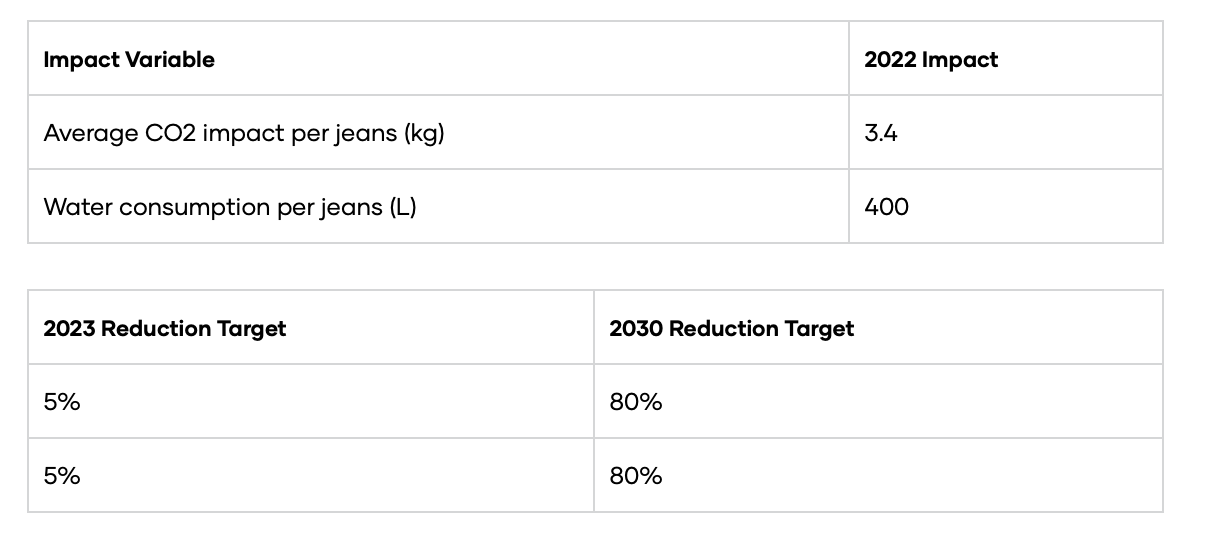
We also use our LCA data to develop strategies towards continuous improvement in order to meet our climate impact reduction goals.
Our focus is continuous improvement. Every year, we strive to reduce our impact a little bit more. Below are our targets for the future. We hope to achieve these targets through further improved data, material selection, production improvements and product development. In 2023, we will continue supporting our supply chain partner Yousstex International in implementing renewable energy into their production. In addition, we will investigate ways to reduce the water impact across our new supply chain partners.
To find out more about how we calculate these values, read our 2022 LCA report here.
Transparency & Tracability
Transparency and traceability are key cornerstones to building an honest brand. More than ever, brands and companies have a responsibility to society, to the environment and to their own customers. MUD Jeans has full traceability of every item that goes into the making of our jeans. This means that we know where our materials come from, and who is making our jeans.
MUD Jeans is unique for the direct relationship that we hold with our supply chain partners. We frequently visit partner factories, works closely with them, and work hard to foster supportive partnerships. This not only creates trust and solidarity, but also breeds innovation! Check out the map below to see the location and name of each one of our material suppliers.
“Traceability and transparency keep us connected to the materials and the people that are involved in the making of our jeans”
Material Transparency
All of our MUD Jeans fabrics use OCS certified organic cotton and GRS certified recycled cotton. The only exception are a small number of deadstock fabrics; these are unwanted and forgotten fabrics from other brands, which we re-use for 5 of our jeans styles. We always aim to use the most sustainable and highquality materials. Our focus is keeping the use of materials monogamous to cotton. This ensures that our jeans can easily be recycled and reincorporated into production
In 2022 our total denim garment production consisted of 66% organic cotton, 28% recycled cotton. In addition, we used 4.5% deadstock fabric, 1% recycled synthetic fibres and 0.5% hemp. Working with recycled cotton is not easy, but we push limits and demonstrate that it can be done. 95.5% of our jeans contain recycled cotton, the rest is made from reused deadstock fabric. Of those jeans with recycled cotton content, 29% are made with 40% post-consumer recycled cotton.
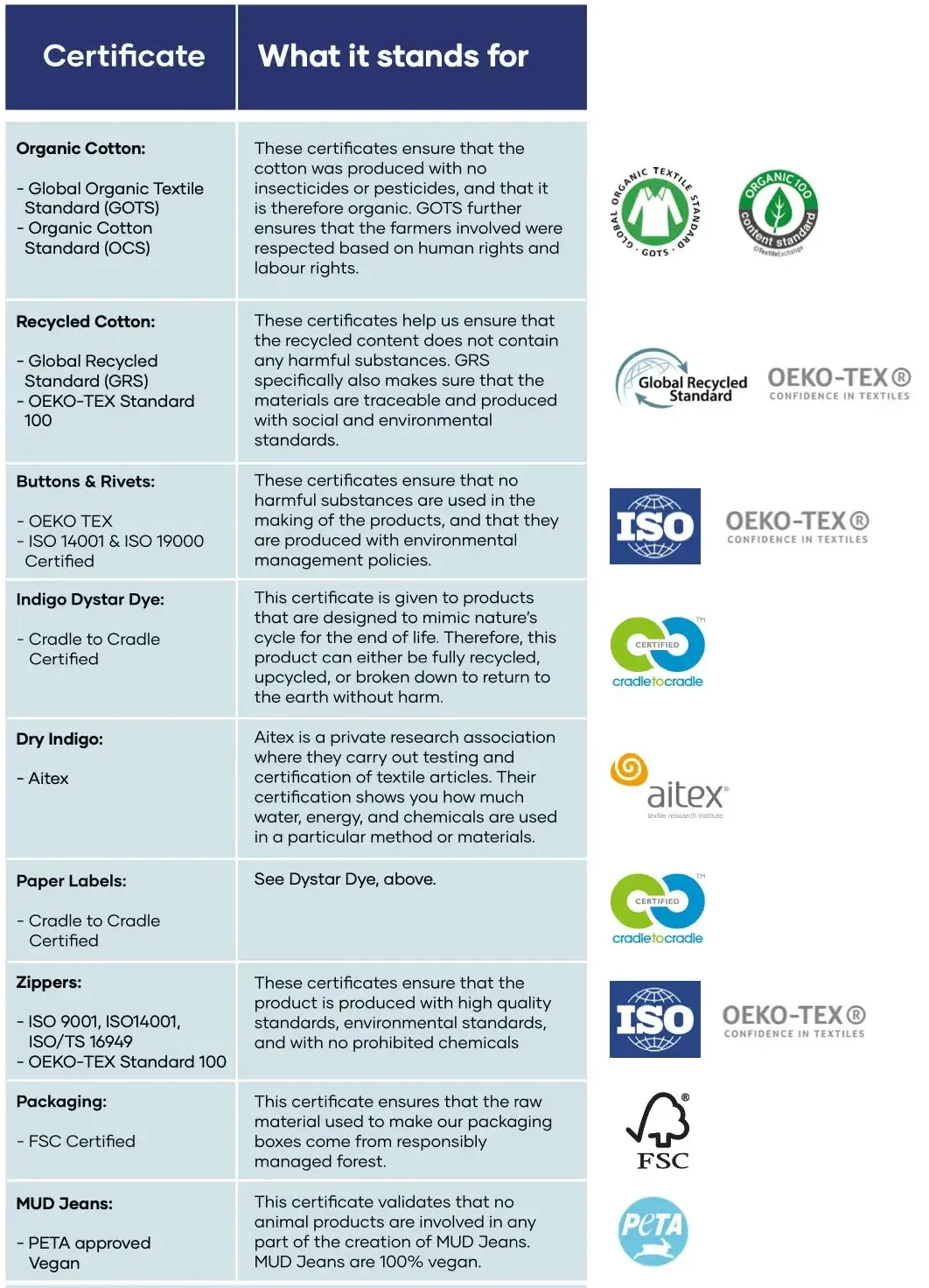
Material Health & Social Responsibility
The materials that are used in the making of a product greatly shape the impact that is has on people and the planet. There is always a choice in the materials that are used. At MUD Jeans, we carefully select materials that are non-toxic, natural, and sustainably produced.
As a small brand, we rely on certificates to help us ensure that the above-mentioned standards are met. We know that the world of certificates is a labyrinth, so here is an overview of the certificates we use and what they stand for.
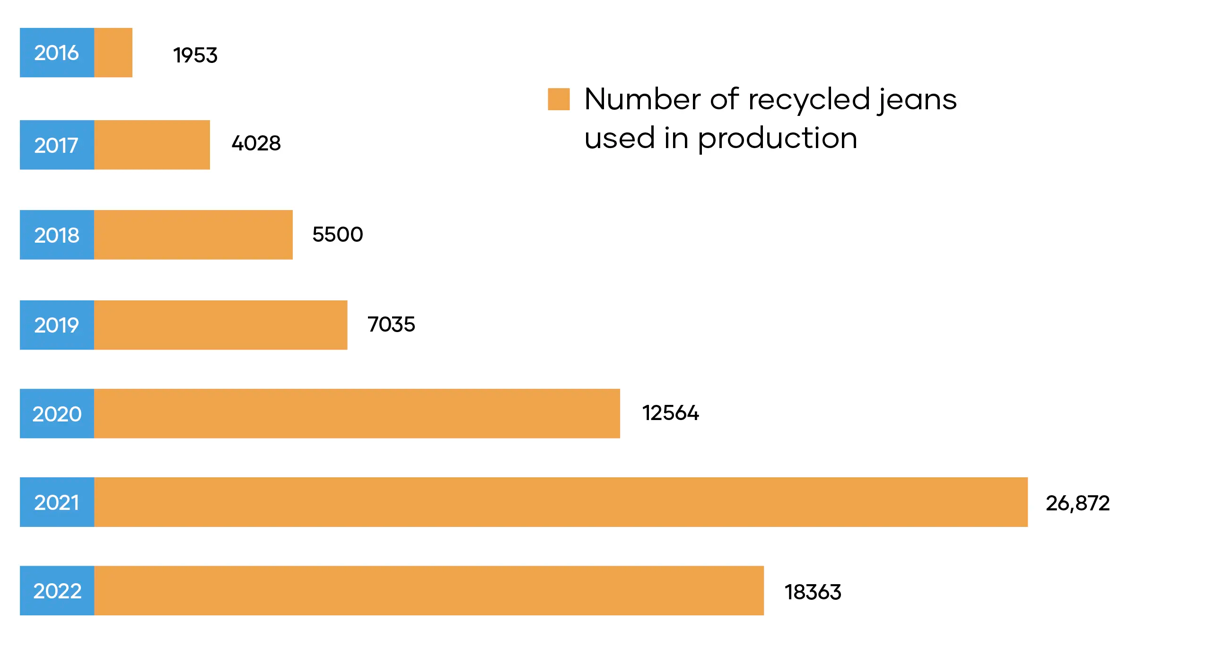
Avoiding Waste
Globally, an estimated 92 million tonnes of textile waste are created each year. In 2019, an estimated 208 million pounds of waste were generated by single-use outfits. That is a lot of waste created from unwanted and unvalued clothes. This is one of the biggest problems of the fashion industry and the linear approach of consumption (take, make, waste).
Through our circular model, we can avoid creating unnecessary waste. As a brand, we take responsibility over the end of life of our product. We can make sure that our old jeans eventually come back to us for recycling, which ensures the continuous use of our valuable raw materials. We aim to conduct a business that respects natural resources and functions within the boundaries of the planet.
Waste is not only created at the end of life of the product, but also across the entire production process. These can be the leftovers of chemicals, scraps from production, and unwanted pieces that did not meet the criteria for sale.
At MUD Jeans, we make sure to keep an eye on these forgotten waste streams too. Currently the 12.5% of fabric loss that is created in production is collected and reused as stuffing. The chemical sludge and oil waste that is produced at Yousstex International is monitored and collected by a Tunisian government agency. Together with our supply chain partners we aim to understand and avoid the creation of waste throughout production wherever possible.

What's in our packaging?
Much like our jeans, we keep our packaging simple and sustainable. The cardboard used for our packaging is FSC certified and contains 72% recycled content. We say no to waste and all things plastic. Thanks to the state-of-the-art facilities of our logistics partner, all jeans are boxed based on size. Upon opening your MUD Jeans delivery, you will find only the essentials, your jeans, and relevant documents.
Responsible chemistry
It has been estimated that 8,000 synthetic chemicals are used in the fashion, textile, and shoe industry to turn raw materials into products. This includes carcinogens and hormone disruptors. These chemicals harm the environment and biodiversity, but also the people that must come in contact with them.
However, not all chemistry is bad chemistry. Everything is made of chemicals; this includes the skin on your body and the coffee you are drinking. The key is in responsibly selecting the chemicals used. MUD Jeans consciously ensures that no toxic chemicals are used in the making of our denim. Between 2018 and 2020 all MUD products have been certified by the Nordic Swan Ecolabel. This certificate reviews all items and procedures and confirms that we only use non-harmful, biodegradable chemicals. In 2021, we have implemented a new and improved chemical policy based on ZDHC guidelines. ZDHC stands for Zero Discharge of Hazardous Chemicals - something we want to stand by. And we are extremely proud that all of our supply chain partners are compliant with this approach.
MUD Jeans is also unique for the elimination of PP spray and pumice stone washing from the production process. Instead, we use innovative techniques such as laser, ozone and so-called “eco stones” to achieve similar effects. These techniques are not only better for the environment, but also for the health of our colleagues that work at the factories and make our jeans.









